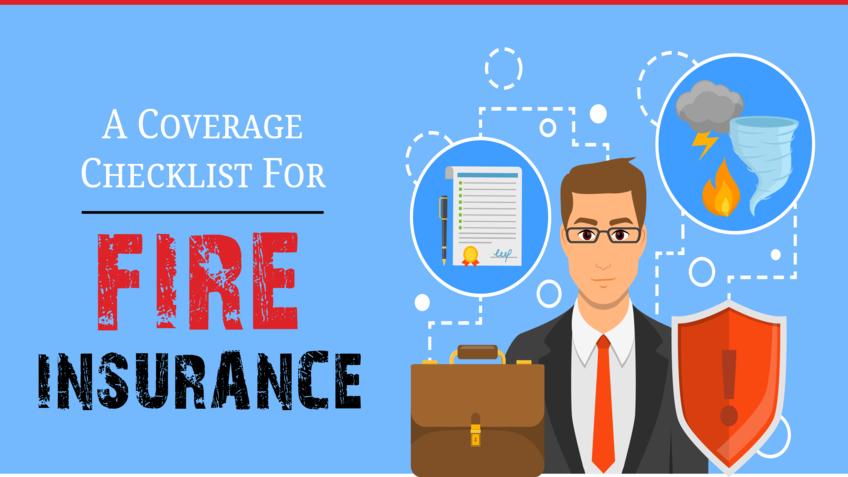
A fire insurance policy is a contract between the policyholder and the insurance company to reimburse the insured for the financial losses suffered due to the destruction or the damage of the property caused by fire. Here is the list of perils which are covered in the standard fire insurance policy:
- Fire
- Bush Fire
- Lightning
- Impact Damage
- Aircraft Damage
- Explosion/Implosion
- Missile Testing Operations
- Storm, Cyclone, Typhoon and Flood
- Subsidence and Landslide including Rockslide
- Leakage from Automatic Sprinkler Installations
RNC is a reputed name providing techno-commercial services as an insurance surveyor, loss assessor and consultant for the valuation of property. They act as an independent engineer for the techno-economic viability studies.
FAQs — Fire Insurance Checklist (India)
1) What is a fire insurance checklist and why do I need it?
A fire insurance checklist is a step-by-step guide to ensure your assets are correctly insured, documented, and compliant—so claims are faster and fully payable.
2) What documents should I keep ready for a fire insurance policy?
Proposal form, KYC, asset register/FAR, recent valuation report, purchase invoices, layout/site plan, fire-safety certificates, AMC/maintenance logs, and utility bills.
3) How do I decide the correct Sum Insured?
Use the reinstatement/new replacement cost for buildings, machinery, and contents—based on a recent professional valuation—to avoid underinsurance.
4) What’s the difference between Market Value and Reinstatement Value?
Market Value = Replacement cost minus depreciation. Reinstatement Value = Current cost to replace new-for-old (recommended for faster recovery after a loss).
5) Which add-on covers should I consider with fire insurance?
Common add-ons include STFI (Storm, Tempest, Flood, Inundation), Earthquake, Burglary (following forcible entry), Debris Removal, Architects/Surveyors fees, Loss of Rent/Profit (BI), and Temporary Removal of Stocks.
6) What are typical exclusions in a fire policy?
Willful/negligent acts, war/nuclear risks, electrical/mechanical breakdown (unless it results in fire), gradual wear/tear, and consequential loss (unless BI cover is added).
7) How often should I update valuations for insurance?
Annually is best; at minimum every 2–3 years or whenever there are major capital additions, relocations, or price volatility.
8) What fire-safety compliances help smooth claim settlement?
Functional extinguishers/hydrants/sprinklers, smoke detection, clear evacuation routes, electrical health checks, staff training records, and scheduled drills.
9) What immediate steps should I take after a fire?
Ensure safety, inform authorities, notify the insurer immediately, protect undamaged property, document the damage (photos/video), and gather invoices/valuation reports.
10) What is Business Interruption (Loss of Profit) cover and do I need it?
BI covers lost gross profits and standing charges during downtime after a fire—crucial for factories, warehouses, retail, hotels, and service operations.
11) How do deductibles/excess impact my claim?
A deductible is the part of loss you absorb. Higher deductibles can lower premiums but increase your out-of-pocket cost at claim time.
12) Who should get a professional valuation for fire insurance and why?
Manufacturers, warehouses, institutions, and commercial property owners benefit from a certified valuation to set accurate sums insured and avoid Average Clause penalties.
Protect Your Business Today
Book a consultation with RNC’s experts to get a professional fire insurance valuation report and ensure your claims are never rejected.
FAQs
1. What documents are required for fire insurance in India?
To obtain fire insurance in India, companies need a property valuation report, a valid fire safety certificate, an updated asset inventory list, and the insurance policy schedule. These documents ensure accurate coverage and smooth claim processing.
2. Why is fire insurance valuation important?
Fire insurance valuation helps businesses insure their assets at the correct replacement value. Without it, companies risk under-insurance or over-insurance, which can lead to disputes or rejection of claims during an unfortunate fire incident.
3. How often should companies update fire insurance valuation?
It is recommended to update fire insurance valuations at least once a year. Additionally, valuations should be revised whenever a company expands, upgrades machinery, or acquires new assets.
4. Can a company’s fire insurance claim be rejected?
Yes, claims can be rejected if documents are incomplete, asset values are outdated, or safety certificates are missing. Accurate and updated valuation reports greatly reduce this risk.
5. Who can provide a fire insurance valuation report in India?
Only certified and registered valuers, such as RNC Valuecon LLP, can prepare professional fire insurance valuation reports that comply with insurance company and regulatory requirements.

About the author:
Sahil Narula
Sahil Narula is the Managing Partner at RNC Valuecon LLP and a Registered Valuer with IBBI. He brings over a decade of experience in Valuation Services, Corporate Finance, and Advisory, having led numerous complex assignments under the Insolvency & Bankruptcy Code, 2016, Mergers & Acquisitions, Insurance, and Financial Reporting.
He is a regular speaker at national forums (ASSOCHAM, CII, ICAI, IBBI, Legal Era) and currently serves as Co-Chairman of ASSOCHAM’s National Council on Insolvency & Valuations and a member of CII’s Task Force on Insolvency & Bankruptcy.
🤝Connect with Sahil on LinkedIn.
